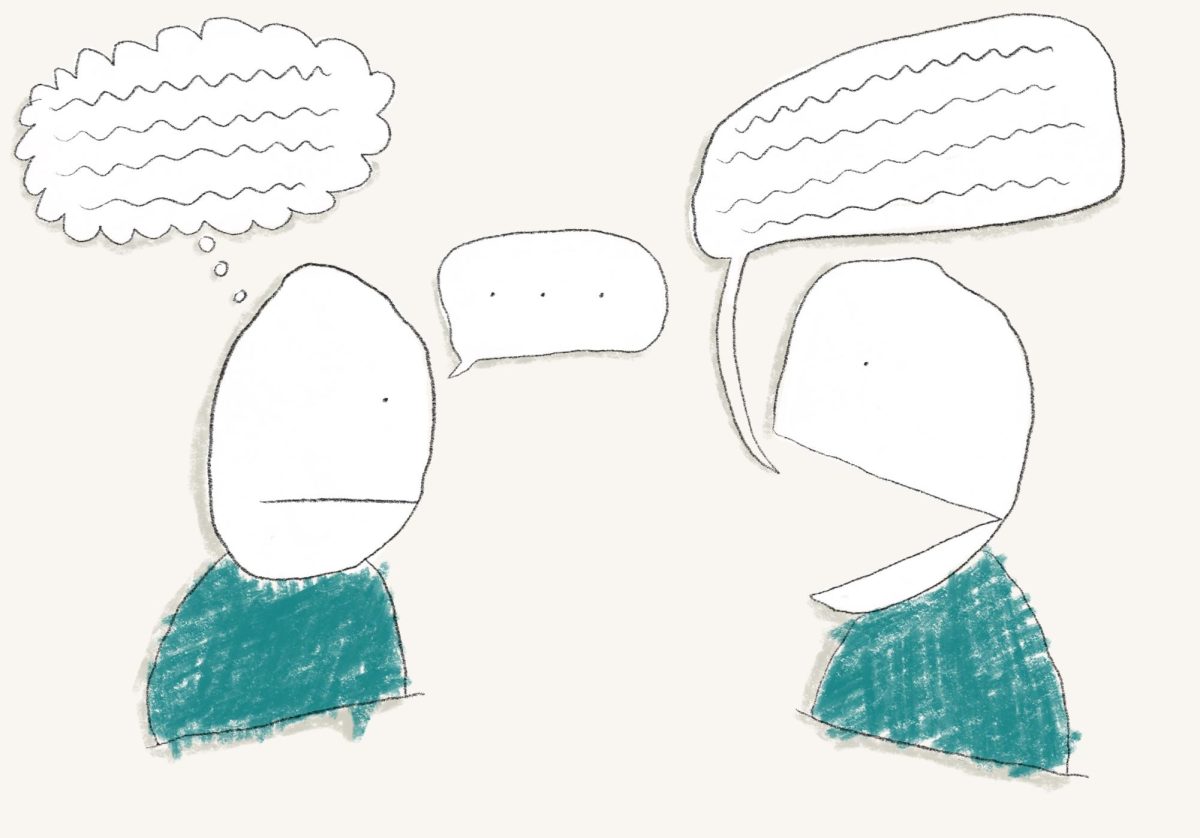Since the Hamas attacks on Israel on Oct. 7, people all over the country are expressing their opinions—or, in some cases, their disapproval of other people’s lack thereof.
Statements such as “Your Silence is Loud” or “Silence is Violence” fill popular media, encouraging more output from American citizens.
Silence, such as a lack of an online post or avoidance of a local protest, is judged as ignorance or neutrality.
This is not a fair assumption. Despite not taking a side publicly, people all over are involving themselves by staying current with news sources, reaching out to family and more. This is not neutrality.
There are many reasons as to why an individual may avoid public displays of opinion in such a difficult time.
Advertising faith or a connection to religious family-members can be dangerous, and social media or any form of activism could gain too much attention. Silence is safer.
Anti-Jewish hate crimes have increased by nearly 37% from 2021 to 2022, an all-time high since they began recording such data in 1991, and they are expected to continue to rise according to an Oct. 2023 FBI report.
Showing support for Israel could increase risk of an attack in any capacity, from online-hate to physical violence.
On the other end, many advocating for Palestine are being accused of antisemitism.
Students at Harvard University were doxxed for their support of a group’s writing of a pro-Palestine letter. The personal information of such students was made public on four websites, and their names posted on a mobile billboard, according to an Oct. 20 ABC News article.
It is no wonder individuals are staying silent when the opposing response is so personal. Seeing such intense opposition to either side also sparks confusion.
Feeling uneducated, or fearing judgement from posting a “wrong” opinion, steers people away from taking “a side.” Educating yourself away from the public eye is also not neutrality.
As I’ve mentioned, America is far from a united front about the Israel/Palestine conflict.
Our own government has shown support almost solely for Israel. President Joe Biden has pledged steadfast support for Israel in an Oct. 2023 X post.
However, the comment section on the post and its corresponding Instagram photo overflow with support for Palestine. Ceasefire requests and “Free Palestine!” hashtags are among the most common.
I discussed silence on social media with a good friend of mine, Savyon Nachman, who is a resident of Israel experiencing the war firsthand.
“I don’t note the silence of anyone besides politicians,” Nachman said. “People have been saying ‘it’s not complicated.’ It always is, and when you lose nuance, you lose information.”
Awareness is good and the contribution of educated, thorough opinions is great. Sharing sources is supportive, but hating on others for avoiding the public eye in the midst of a crisis is much different and unnecessary.
“One of the things that happens when you note people’s silence is that you create more antagonism toward whatever your cause is—and it becomes biased pretty quickly,” Nachman said.
Nachman recommended vetting your sources, making sure you check out sources arguing opposite points and figuring out how you feel for “if or when” you’d like to go public.
“Speak because you don’t want to stay silent, not because someone told you that you have to,” she said.
Let’s take her advice.














